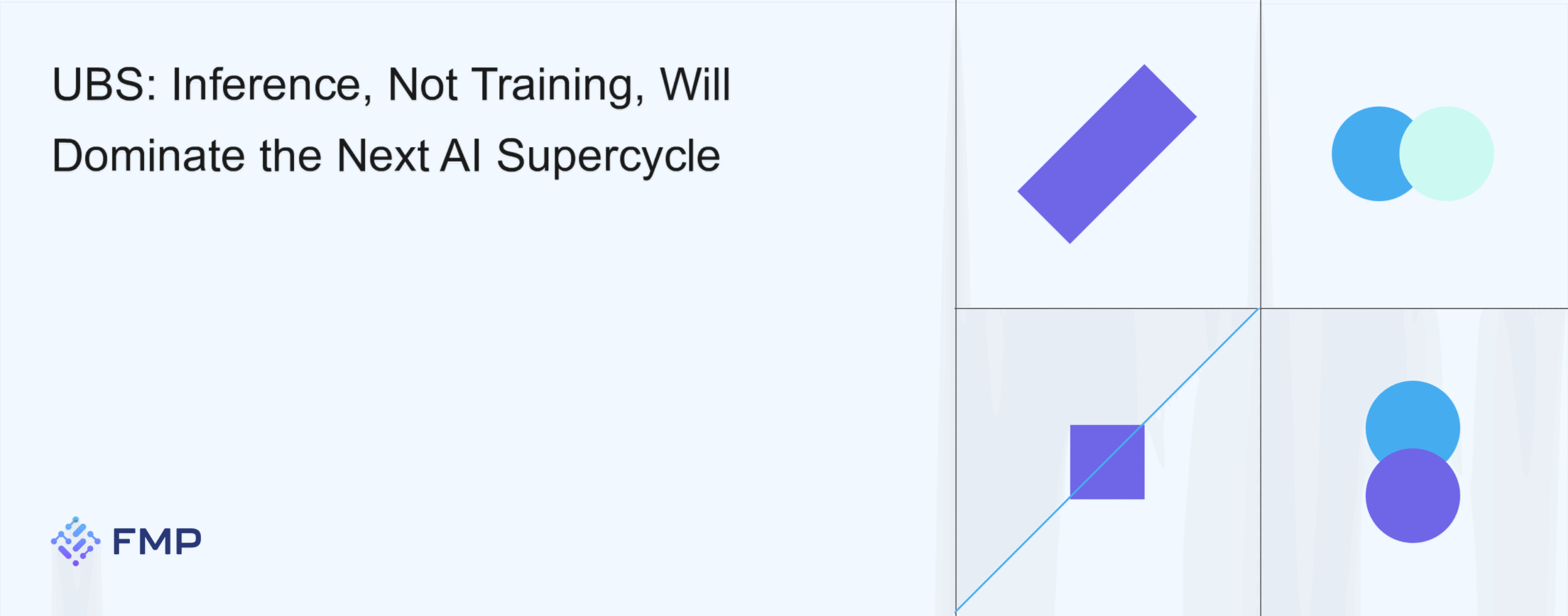Despite mounting investor anxiety over tariffs and AI infrastructure overspending, UBS believes we are entering an explosive new phase of AI growth—one driven not by model training, but by inference. The bank’s latest research shows that genAI inference compute demand is set to surge 100x or more over the next five years, with wide-ranging implications for sectors from finance to logistics.
Inference Is the New Frontier
While much of the 2020–2023 boom focused on model training (think GPT and Gemini pretraining), UBS argues that running models at scale—especially for real-time reasoning, decision-making, and enterprise automation—is where future capex and compute demand will concentrate.
Quoting Nvidia CEO Jensen Huang, the bank underscores the shift:
“The amount of computation we need as a result of agentic AI and reasoning is easily 100x more than we thought we needed this time last year.”
This redefines how companies and investors should think about AI infrastructure in the context of macro uncertainty.
Why Inference Outpaces Training
1. Ubiquity of Applications: Unlike training, which occurs infrequently, inference powers daily, real-time interactions across billions of users and enterprise tasks.
2. Agentic AI Emergence: UBS singles out agentic AI—AI agents capable of autonomous workflows, customer support, and strategic planning—as the key growth engine, with demand projected to hit 14 zettaFLOP/s by 2030.
3. Rising Model Complexity: New techniques like Chain of Thought (CoT) reasoning and multimodal processing require exponentially more compute at the inference layer.
UBS Forecast: GenAI Compute Demand by 2030
| Use Case | 2024 Demand | 2030 Forecast |
|---|---|---|
| Chatbots (e.g., ChatGPT) | 10 exaFLOP/s | 200 exaFLOP/s |
| Enterprise AI (e.g., fraud detection) | 15 exaFLOP/s | 440 exaFLOP/s |
| Agentic AI | 100s of exaFLOP/s | 14 zettaFLOP/s |
| Physical AI (e.g., robotics) | Emerging | TBD |
Investment Takeaway: The Capex Supercycle Is Just Beginning
UBS warns that investor fears over overspending in AI infrastructure may be misplaced. The scale of compute demand from inference—especially in enterprise and agentic AI—will likely justify sustained capex from hyperscalers like Google, Microsoft, and Amazon.
Conclusion
As UBS puts it, AI inference isn’t just the next chapter—it’s the entire next book. With agentic AI promising a generational shift in compute needs, investors should reconsider short-term caution and position for a multi-year capex renaissance in AI infrastructure.




